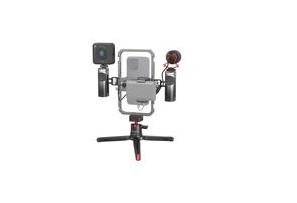
Over the last few years, a lot has happened in the oil-and-gas industry. Unfortunately, many of these changes have led to the worst. Despite all this chaos, there is one bright spot: technology is now catching up to the needs of the oil-and-gas industry.
Electronic gauges are one example of technological advancement. Electronic gauges, contrary to their name, are not new. However, their widespread use has recently been recognized in the well-servicing market for drilling applications.
What makes electronic gauges so unique? Why is it important for a market that serves well? These questions and many more will be addressed in this post. Continue reading!
What Are Electronic Gauges? How Do They Work?
Digital gauges, also known as Electronic gauges, use electric signals to display and measure different process parameters. These gauges are used for servicing wells in many industries, but they have the most common use in the oil and natural gas industry.
The accuracy of electronic signals is higher than that of traditional methods and can be used for measuring many parameters. Digital gauges provide data that can be used to improve efficiency and accuracy.
An electronic gauge works by passing an electric current through a conductor. This creates a magnetic force. The magnetic field strength is dependent on the parameter being measured, such as temperature, pressure or flow rate. The electronic gauge uses sensors to measure and convert the magnetic field into an analog or digital signal. The signal is displayed on a monitor for the operator’s reading.
How electronic gauges can improve well servicing operations & results?
Because electronic gauges are much more precise than traditional gauges, users can trust them to provide more accurate information about pressures and other conditions in wells. This information can be used to optimize well-servicing operations and improve results.
Electronic gauges are also more durable than traditional gauges. They are durable and can be used for many years. You won’t need to replace them as often, which will save you money over the long-term.
Take a look at these highlighting benefits.
The Benefits of Digital Electronic Gauges for Well Servicing Markets
There are many advantages to using a digital gauge in well servicing operations. They are highly accurate and can detect very minor changes in parameters. This is important in well servicing because it allows operators make precise adjustments to drilling to get the desired results.
Electronic gauges also have the following notable benefits:
- They are extremely durable and rugged.
- Can withstand extreme temperatures and harsh conditions.
This is crucial for well servicing as it can be dangerous and dirty. It is therefore important to have reliable equipment.
What are the potential drawbacks to using electronic gauges in well servicing operations?
Yes, electronic gauges can have some drawbacks, just like other drilling instruments.
- These can be costly, so companies might not want to invest unless they are absolutely necessary.
- Another problem is the fact that electronic gauges need a power source. If the power goes out the gauges won’t work.
Tips for Using and Maintaining Your Electronic Gauge
There are some key points to remember when it comes to electronic gauges.
- Regular calibration is a must for your electronic gauge. You can calibrate your gauge using the included calibration kit.
- Make sure your electronic gauge is clean and clear of any debris. This will ensure that you get accurate readings.
- When not in use, keep your electronic gauge safe. It will be protected from any damage and ready to use whenever it is needed.
- Regularly inspect your electronic gauge for signs of wear or damage. For further assistance, contact the manufacturer if you find anything unusual.
These simple tips will ensure your electronic gauge runs smoothly. This will improve the accuracy of your well-servicing operations. By providing precise readings that are more accurate than traditional gauges and methods, electronic gauges can help you save time and money.
Are you looking for reliable sources to help you explore the various drilling instruments, custom cables and compression instruments in Canada?



